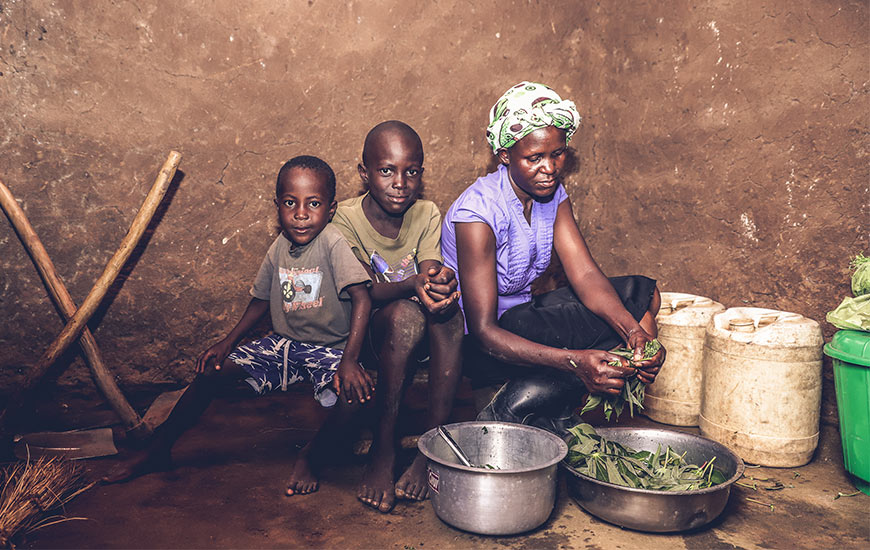Not long ago, mum of two Beatrice Abukayot used to support her young family with an income she earned from the back-breaking job of ploughing other people’s fields. Today, the 34-year-old is a farmer and entrepreneur in her own right.
On her one-acre farm situated in Busia County in Western Kenya, Beatrice – who received farming training and quality seeds from Self Help Africa – grows enough cassava to feed her family and to sell a surplus.
“In the past, I didn’t have quality seeds to grow my cassava and I didn’t know about the spacing required to grow it,” she explains. “Self Help Africa allowed me to commercialize my surplus by linking me to cooperatives.”
Amongst these cooperatives is Tongakona, a group supported by Self Help Africa. The cooperative was started by ten local farmers about 20 years ago and has since grown exponentially. Today, it sells cassava on behalf of about 3,000 farmers in the Busia region, enabling them to access new markets and get a fairer price for their produce. Beatrice has seen the benefit of selling through the local, member-owned institution:
“It enables me to reach a wider market and because the cassava is processed by the cooperative, I can get a better price. I also receive my payment promptly upon delivery,” she explains.
Tangakona is a major supplier of dried cassava, a good that has seen its demand grow on the market. The cooperative also sell stems to farmers who want to get into commercialized cassava farming.
By partnering with TruTrade, a social enterprise that uses mobile technology to add transparency to the buying and selling of produce, they are able to secure a fairer price for the farmers.
“Today, I make roughly 24,000 Kenyan Shillings (250 dollars) in one harvest. That has enabled me to pay school fees for my children, build a better house and to re-invest in my farm,” Beatrice concludes.

